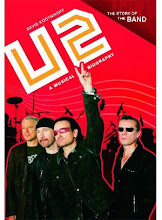
"We all had a drink together, native and European alike, quite amicably. The dead man was a hundred yards away." - from "A Hanging"To say George Orwell had a problem with authority is an understatement. He was Brando wrapped in tweed as Johnny Strabler in The Wild One. When Mildred asks, "What're you rebelling against, Johnny?" Orwell had the quintessential answer: "Whaddya got?" Not only was he right about the three biggest issues of the 20th century - imperialism, fascism, & Stalinism - he delivered their most thorough rebuke in essays and novels like Burmese Days (1934), Animal Farm (1945), and Nineteen Eighty-Four (1949). He had the ability to distill truth from the detritus of popular thought and relished his role as an executioner of falsehoods.
 As Christopher Hitchens said:
As Christopher Hitchens said: "Orwell's first rebellion against power, illegitimate power as he thought of it, was against the assumption that the world would be ruled indefinitely by white Europeans."I just reread Orwell's brilliant short essay, "A Hanging," based on his time as a colonial police officer in Burma from 1922-1927. Published in 1931 when he was twenty-eight, it's a perfect still photograph, rendered in words, of an execution. As a master writer, he knew what to reveal and how to shade his language in such subtle tones that his intent is both invisible and undeniable at the same time.
 "A Hanging" is a scathing indictment of capital punishment and imperialism at a time when his employers (the British Crown) were in no mood to receive it. As he would continue to do for the rest of his life, Orwell railed against all forms of tyranny. He remains more relevant than ever in this age of extraordinary rendition, terror wars and despots like Gaddafi. It's no surprise that his original title for Nineteen Eighty-Four was The Last Man in Europe. Orwell knew too much to ever be duped.
"A Hanging" is a scathing indictment of capital punishment and imperialism at a time when his employers (the British Crown) were in no mood to receive it. As he would continue to do for the rest of his life, Orwell railed against all forms of tyranny. He remains more relevant than ever in this age of extraordinary rendition, terror wars and despots like Gaddafi. It's no surprise that his original title for Nineteen Eighty-Four was The Last Man in Europe. Orwell knew too much to ever be duped.










No comments:
Post a Comment